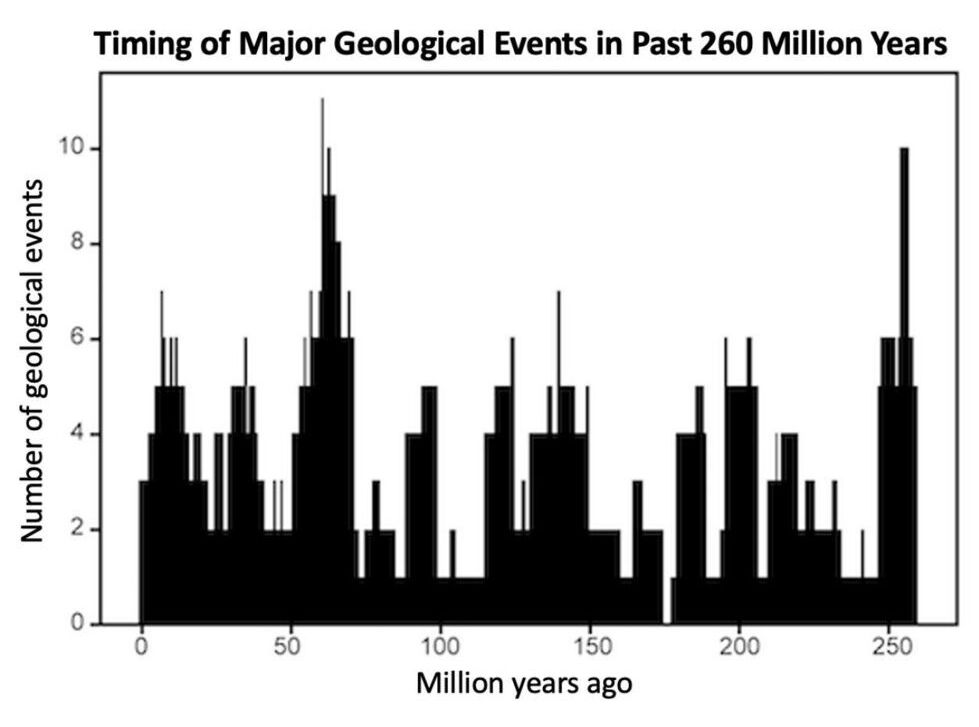Geologic activity on Earth appears to follow a 27.5-million-year cycle, giving the planet a ‘pulse,’ according to a new study published in the journal Geoscience Frontiers.
“Many geologists believe that geological events are random over time. But our study provides statistical evidence for a common cycle, suggesting that these geologic events are correlated and not random,” said Michael Rampino, a geologist and professor in New York University’s Department of Biology, as well as the study’s lead author.
Over the past five decades, researchers have proposed cycles of major geological events—including volcanic activity and mass extinctions on land and sea—ranging from roughly 26 to 36 million years. But early work on these correlations in the geological record was hampered by limitations in the age-dating of geologic events, which prevented scientists from conducting quantitative investigations.
